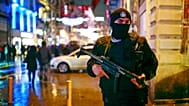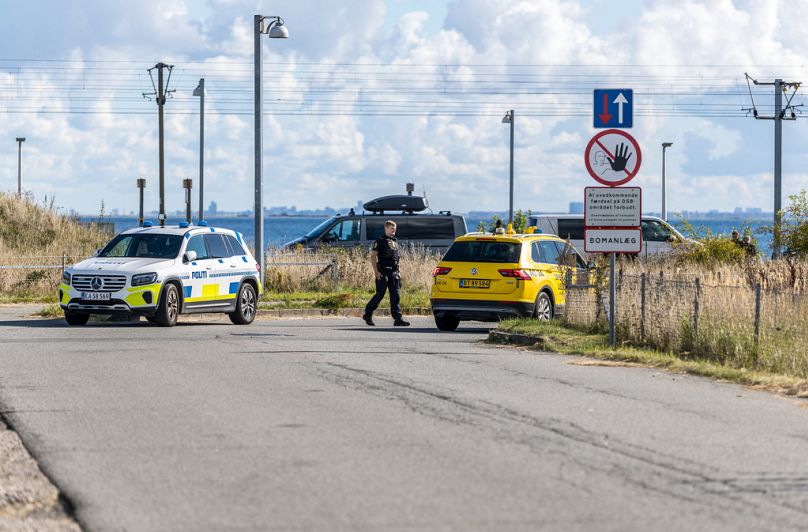Suspected drone activity disrupted Denmark's Aalborg airport for the second time within 24 hours on Thursday evening, after Copenhagen alerted NATO and the EU over a similar "hybrid attack" the day before.
Suspected drone activity forced Denmark's Aalborg airport to close for a second time in just 24 hours right before midnight on Friday, the latest in a slew of similar incidents that prompted Danish authorities to alert NATO and the EU.
The incursion forced the airport, which is used for both commercial and military flights, to shut down from 11 pm to 12 am after an object was sighted in the sky.
It is the latest instance of drone activity Danish authorities deemed a well-organised hybrid attack, raising further concerns about security in northern Europe amid growing Russian airspace incursions.
Speaking at a press conference on Thursday, Danish Deputy Prime Minister and Defence Minister Troels Lund Poulsen said that a “professional actor” was behind the “systematic operation” that was difficult to fight against.
“This is an arms race against time because technology is constantly evolving,” Lund Poulsen said, while remaining positive that the culprits will be brought to justice.
"We are going to find the people who are behind this," he stated.
The goal of the flyovers was to sow fear and division, Danish Minister of Justice Peter Hummelgaard said Thursday, adding that the country will seek additional means to neutralise drones, including proposing legislation to allow infrastructure owners to shoot them down.
Danish intelligence officials further stated that the risk of Russian espionage and sabotage in Denmark is high.
“We have seen this in other parts of Europe, and we must also expect to see it in Denmark,” Danish Security Intelligence Service chief Finn Borch told a news conference Thursday night.
Authorities said there was no imminent danger to the public, however.
European 'drone wall' in the works
Earlier this week, flights were halted for several hours at Aalborg Airport, after drone sightings began shortly before 10 pm Wednesday and ended just before 1 am Thursday.
Three airports in Esbjerg, Sønderborg and Skrydstrup were also impacted. Skrydstrup is an air base that is home to some of the Danish military's fighter jets.
The drones appeared to be flying around the airports with their orientation lights turned on, making them visible, but authorities decided against attempting to shoot down the drones, police said. Additional details were not immediately available.
The latest drone activity came just days after a similar incident at Copenhagen Airport, conducted by what police call a “capable actor”.
The drones grounded flights in the Danish capital for hours Monday night, prompting concerns that Russia could be behind the flyover above the region's largest airport.
While it was not immediately clear who was behind the flyover, authorities including NATO’s Secretary-General Mark Rutte said that Russian involvement could not be ruled out.
Danish Prime Minister Mette Frederiksen called the Copenhagen incident “the most serious attack on Danish critical infrastructure to date.”
Frederiksen said she was in contact with Rutte.
"We agreed that NATO would work with Denmark on what we can do together to ensure safety and security,” she wrote on the social platform X.
Denmark will join a group of neighbouring countries on Friday to discuss the European Union’s plans for a "drone wall," in what European Commission President Ursula von der Leyen said was “the bedrock of credible defence”.
Security concerns in Europe have escalated as the number of Moscow-linked drone sightings and incursions continues to rise.
On Tuesday, NATO warned Russia that it would use all means to defend against any further breaches of its airspace after the downing of Russian drones over Poland earlier this month and an intrusion of Russian fighter jets into Estonian airspace last week.
Speaking before the latest drone sightings in Denmark, French President Emmanuel Macron argued that NATO nations would have to react “more strongly” to Russian incursions. He did not detail the potential response.
“We cannot allow the idea to take root that Poland, Estonia (and) Romania are in a weak situation because the next step would be Germany and then us,” Macron said in an interview with broadcasters France 24 and RFI.
Russia has rejected the allegations of its involvement in the drone incidents.
















